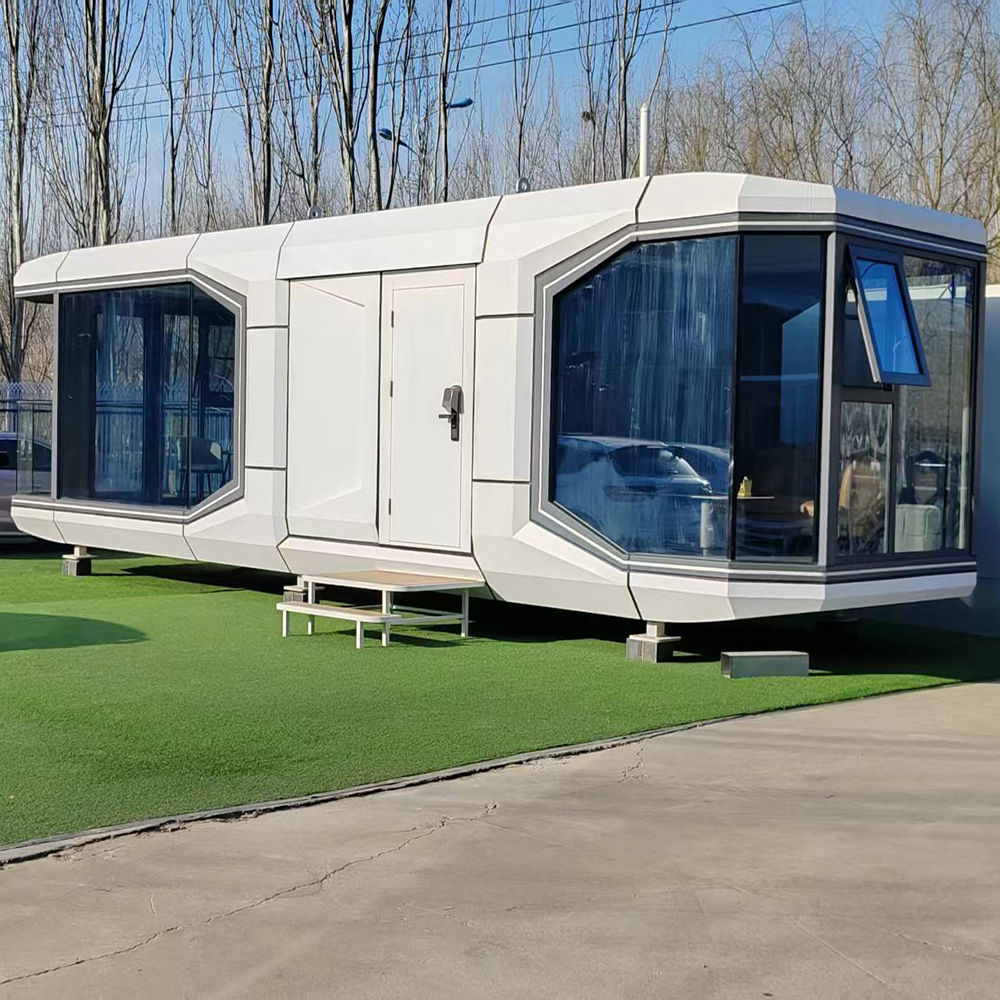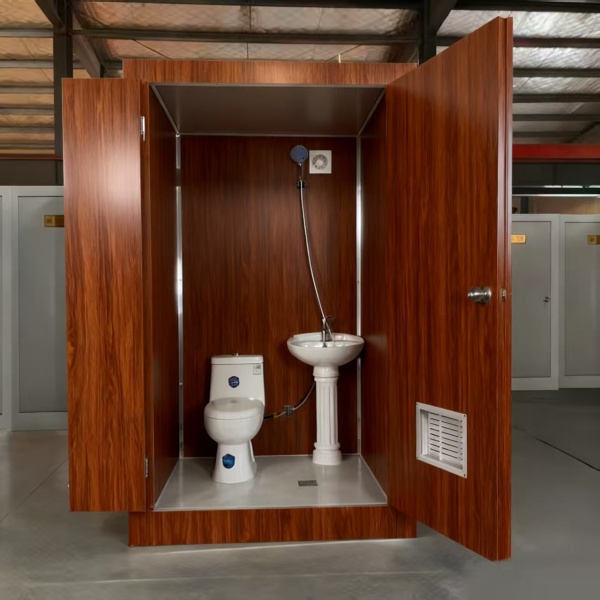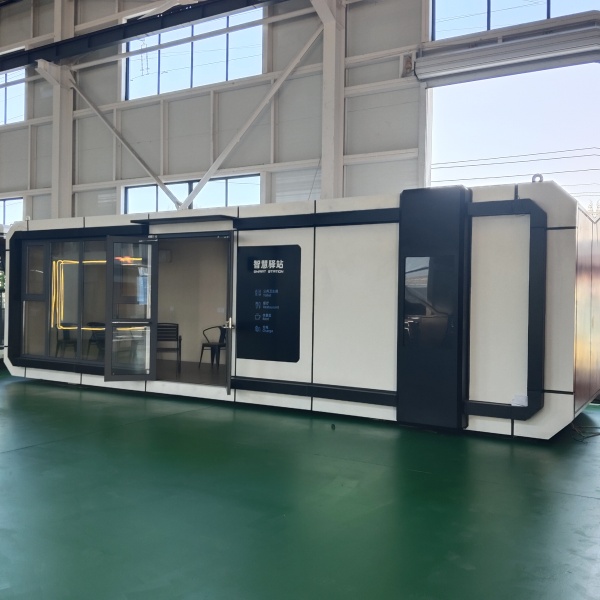-
E-mail
Austin120521@outlook.com -
E-mail
sales@jujiuhouse.com -
Telephone
+86-17864099991 -
Telephone
+86-17854044442
- Chinese
- French
- German
- Portuguese
- Spanish
- Russian
- Japanese
- Korean
- Arabic
- Irish
- Greek
- Turkish
- Italian
- Danish
- Romanian
- Indonesian
- Czech
- Afrikaans
- Swedish
- Polish
- Basque
- Catalan
- Esperanto
- Hindi
- Lao
- Albanian
- Amharic
- Armenian
- Azerbaijani
- Belarusian
- Bengali
- Bosnian
- Bulgarian
- Cebuano
- Chichewa
- Corsican
- Croatian
- Dutch
- Estonian
- Filipino
- Finnish
- Frisian
- Galician
- Georgian
- Gujarati
- Haitian
- Hausa
- Hawaiian
- Hebrew
- Hmong
- Hungarian
- Icelandic
- Igbo
- Javanese
- Kannada
- Kazakh
- Khmer
- Kurdish
- Kyrgyz
- Latin
- Latvian
- Lithuanian
- Luxembou..
- Macedonian
- Malagasy
- Malay
- Malayalam
- Maltese
- Maori
- Marathi
- Mongolian
- Burmese
- Nepali
- Norwegian
- Pashto
- Persian
- Punjabi
- Serbian
- Sesotho
- Sinhala
- Slovak
- Slovenian
- Somali
- Samoan
- Scots Gaelic
- Shona
- Sindhi
- Sundanese
- Swahili
- Tajik
- Tamil
- Telugu
- Thai
- Ukrainian
- Urdu
- Uzbek
- Vietnamese
- Welsh
- Xhosa
- Yiddish
- Yoruba
- Zulu
- Kinyarwanda
- Tatar
- Oriya
- Turkmen
- Uyghur

prefab folding house
The Rise and Nuances of Prefab Folding Houses
Prefab folding houses are revolutionizing the housing industry with their remarkable blend of efficiency and sustainability. They are not just a fleeting trend but represent a shift in how we perceive and construct living spaces. However, navigating this landscape requires an understanding of both the potentials and pitfalls inherent in these constructions.
Understanding Prefab Folding Houses
When people think of prefab folding houses, they often imagine something temporary or even flimsy. This couldn't be further from the reality for companies like Shandong Jujiu Integrated Housing Co., Ltd. In truth, these structures are a testament to innovative engineering, optimized for both durability and eco-friendliness.
I've seen these houses assembled within hours, transforming a barren plot into a complete living space. This speed doesn't come at the expense of quality. The materials used are carefully selected to withstand various environmental conditions, ensuring longevity. Shandong Jujiu particularly excels in this, offering robust solutions through their light steel villa designs as seen on their website.
One of the initial challenges I faced while working on a project involving prefab homes was community skepticism. People doubted their stability and comfort. It took a comprehensive demonstration—including structural tests and material quality showcases—to convince stakeholders of their viability.
Construction and Design Flexibility
A compelling feature of these homes is their design flexibility. Prefab doesn't mean cookie-cutter anymore. The design stage allows for significant customization, adapting to personal tastes or environmental considerations, thanks to the modular nature.
I remember a project where a client requested a home that blended seamlessly into a forested area. Leveraging the modular nature of these homes, we incorporated extensive glass panels and wooden facades to create an aesthetic that respected the natural landscape.
Moreover, the integration of advanced design software allows for a high degree of personalization. Shandong Jujiu, for example, uses these tools not only to create efficient layouts but also to ensure structural integrity in every custom element, maintaining a balance between form and function.
Installation and Technical Challenges
While rapid installation is a hallmark of prefab houses, it’s not without its hurdles. One project I worked on faced logistical delays due to a lack of local expertise in handling prefabricated elements. This is where having a reliable partner like Shandong Jujiu becomes crucial, as their experience in installation can streamline the process.
There are often unforeseen site-specific challenges, such as uneven ground or difficult access points which need creative problem-solving. In one such instance, the use of adjustable foundation systems was key, ensuring a level platform without extensive grading.
The importance of skilled labor can't be understated. Prefab houses might seem like a plug-and-play solution, but their installation requires a nuanced understanding of both construction and local regulations, especially in urban settings where every centimeter matters.
Environmental Considerations
The ecological benefits of prefab folding houses often serve as a major selling point. The manufacturing process is typically more resource-efficient than traditional builds, with less waste. Many clients are drawn to this aspect, especially when projects aim for sustainability certifications.
That said, it's important to evaluate the entire lifecycle of a building. From material sourcing to eventual disposal or recycling, each stage impacts the environmental footprint. In collaborations with Shandong Jujiu, I've seen an impressive commitment to using recyclable materials and cutting down carbon footprints during production and transport.
We've integrated solar panels and rainwater harvesting systems in several projects, aligning with clients' eco-conscious goals. Prefab houses lend themselves well to these technologies due to their inherent design flexibility and efficiency in incorporating such systems from the outset.
Future Trends in Prefab Folding Homes
The future looks promising, with digitalization and smart home technology paving the way. I anticipate prefab homes will increasingly integrate AI-driven systems for energy management, security, and home automation, giving residents more control and efficiency.
Additionally, urban demands for rapid and sustainable housing solutions will likely drive innovation. Companies like Shandong Jujiu are ideally positioned to lead in this arena, backed by their comprehensive approach to R&D and design excellence.
Ultimately, the biggest lesson from my experience is the importance of viewing prefab folding houses not just as a product, but as a holistic living solution. It's a paradigm shift that challenges conventional notions of home construction, promising a future where quality and speed are no longer mutually exclusive.
Related products
Related products
Best selling products
Best selling products-
 The foldable container house with side wing design can be quickly set up and is suitable for various environments.
The foldable container house with side wing design can be quickly set up and is suitable for various environments. -
 Detachable Design Prefabricated Container House Portable Modular Office Building Folding Container House
Detachable Design Prefabricated Container House Portable Modular Office Building Folding Container House -
 High-quality Double-wing Folding Container House with Doors and Windows, Insulated Walls, Suitable for Various Scenarios.
High-quality Double-wing Folding Container House with Doors and Windows, Insulated Walls, Suitable for Various Scenarios. -
 Hot-selling foldable container houses, expandable prefabricated houses, suitable for office or living use, with fast delivery.
Hot-selling foldable container houses, expandable prefabricated houses, suitable for office or living use, with fast delivery. -
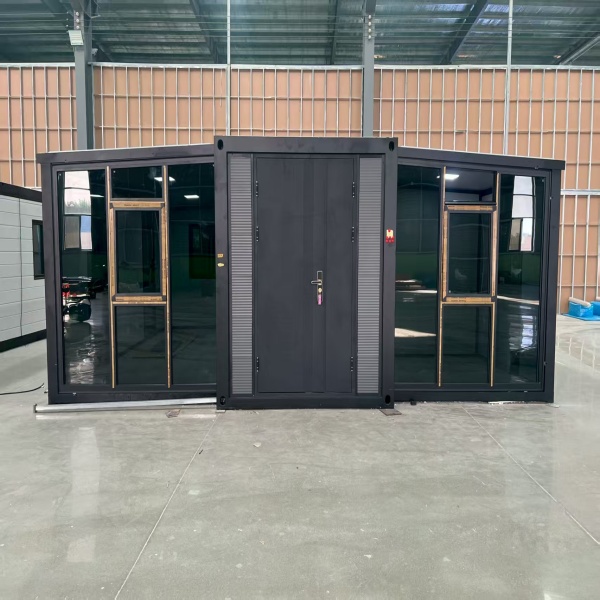 Customizable Office Mobile Home with Flat Roof and Double Wing Expansion Box, Convenient Container
Customizable Office Mobile Home with Flat Roof and Double Wing Expansion Box, Convenient Container -
 Luxury Foldable Two Story Container House for Glamping Resort and Villa Hotel
Luxury Foldable Two Story Container House for Glamping Resort and Villa Hotel -
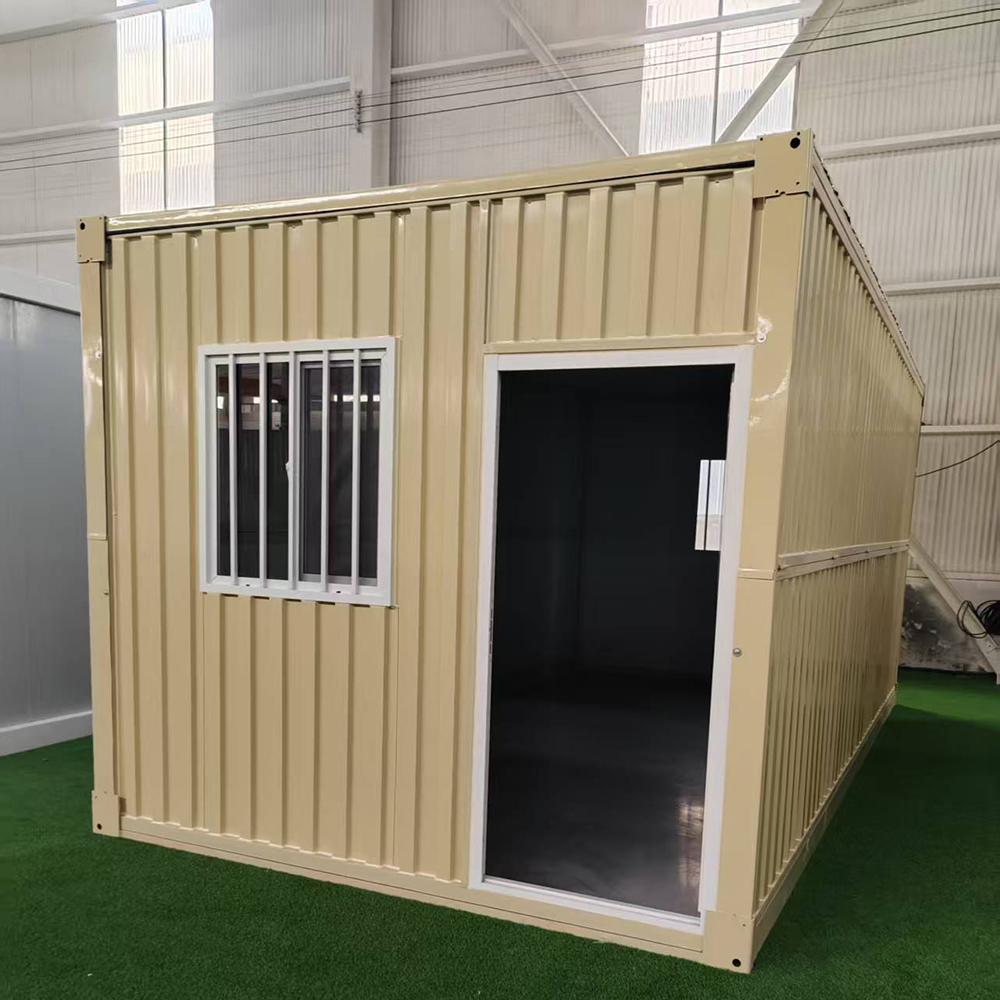 Competitive Price Portable Container House Foldable Container Mobile Living Modular Homes
Competitive Price Portable Container House Foldable Container Mobile Living Modular Homes -
 Customized Expandable Container House Holiday Home Folding Prefab Container House with Bathroom and Kitchen
Customized Expandable Container House Holiday Home Folding Prefab Container House with Bathroom and Kitchen -
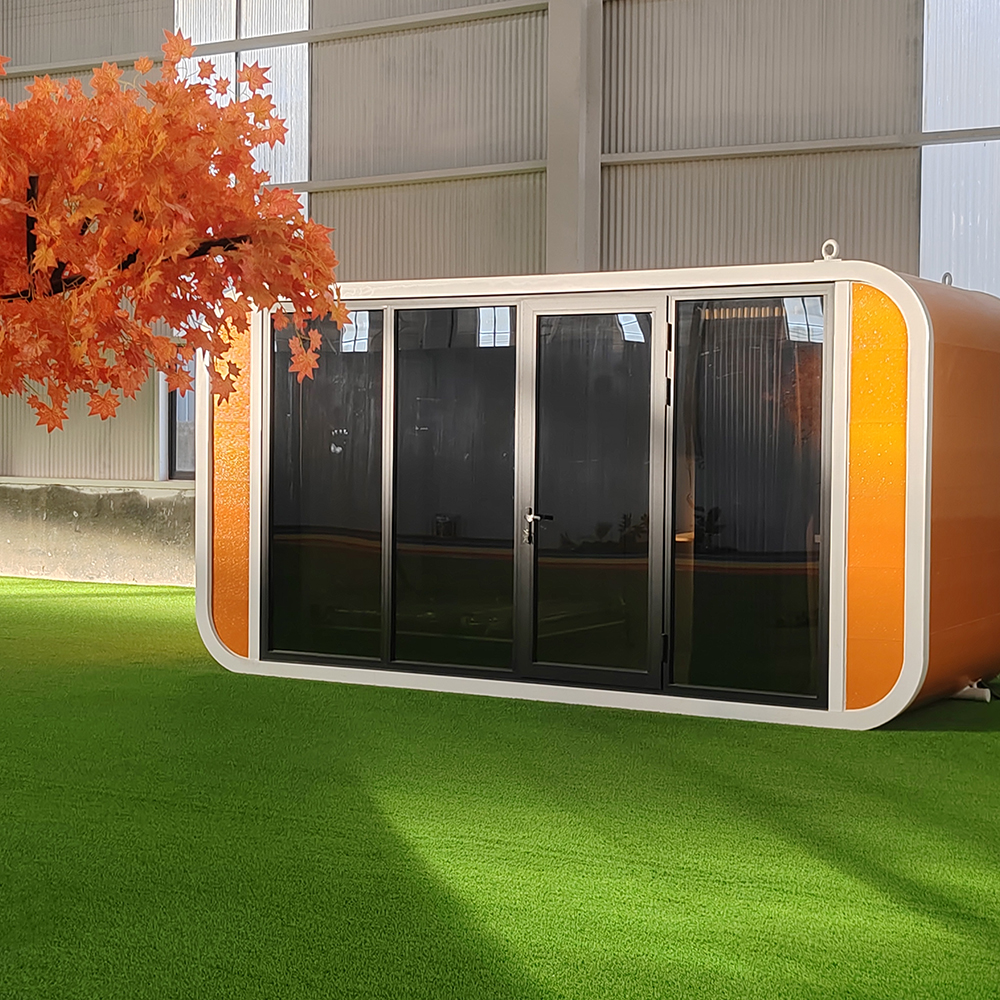 Luxury Prefabricated Living Container House Modular Glass Tiny House Prefab Container Home Apple Cabin
Luxury Prefabricated Living Container House Modular Glass Tiny House Prefab Container Home Apple Cabin -
 Easy Install Customized Detachable Container Homes Extendable House Prefab 2 Floors Expandable Container House
Easy Install Customized Detachable Container Homes Extendable House Prefab 2 Floors Expandable Container House -
 Waterproof folding container house – mobile accommodation for campsites/scenic spots
Waterproof folding container house – mobile accommodation for campsites/scenic spots -
 Movable Prefabricated Container House Villas Modular Portable Homes 1 Bedroom Container House Offices Apartments
Movable Prefabricated Container House Villas Modular Portable Homes 1 Bedroom Container House Offices Apartments
Related search
Related search- space capsule house luxury mobile home
- expandable container house america prefab house
- China modern space capsule
- folding house price
- shipping container fold out homes
- prefab expandable house
- Buy portable fold out homes
- folding house container
- low price flat pack container house prefabricated
- Buy expandable prefab house









